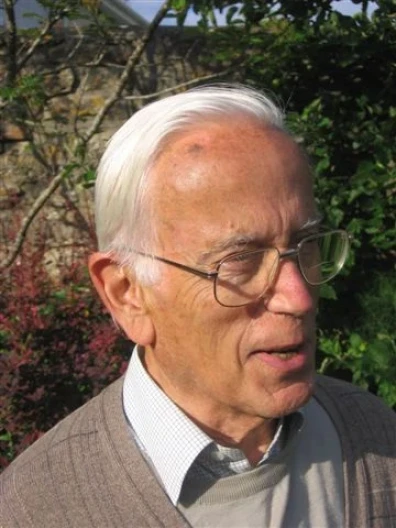
Angus WATSON
2011 Honorary Fellow

Citation
Angus Watson was born in 1932 in Kunming, Yunnan Province, China, the youngest of the four children of Dr Alexander and Dr Mary Watson, who had been married in the Bishop of Hong Kong’s Chapel in January, 1924. Initially they were sent by the Church Missionary Society to work in hospitals in Behai and later in Kunming, before finally returning to England in 1939 – arriving there just a few days before the beginning of the Second World War.
Mr Watson was a pupil of the great English violinist, Albert Sammons, at the Royal College of Music, also studying conducting later with Sir Adrian Boult. He was then awarded a music scholarship to Magdalene College, Cambridge in the early 1950s.
His professional career included 10 years as the Director of Music at Stowe School and 13 years as the Master of Music at Winchester College. But when the Provisional Council of the HKAPA advertised the post of Dean of Music, he did not hesitate to apply for the position, and on his appointment in 1984 he came out to Hong Kong to be the first Dean of the School of Music. He remained as Dean for the next six years. But when the first of his nine grandchildren was born, he and his wife, Alison, decided to return to England to be closer to their growing family, and from 1990-1994 he was the Director of specialist music at Wells Cathedral School.
He has kept himself busy since his retirement, initially as an examiner for the Associated Board of the Royal Schools of Music, with extensive tours in Europe, the USA, Canada, Australia, New Zealand, the Middle East, South Africa and the Far East – including Hong Kong. Since taking full retirement, he has kept busy with his family and also with writing; first, a book about his father, Dr Alexander Watson, and more recently a book – “Beethoven’s Chamber Music in Context”, published by Boydell & Brewer in November, 2010. Reviewers have warmly recommended the book as being an “excellent, comprehensive, authoritative and extremely enjoyable study of a subject about which most readers are sure to emerge better informed from reading the book. Musicians, listeners and even those interested in artistic endeavour in general, will all find the book rewarding. It is likely to remain the standard work on the subject for some long time.”